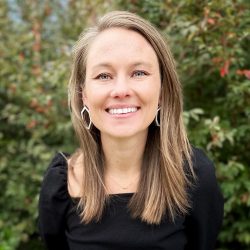Pandemic policy changes may have helped sustain access to treatment for opioid use disorder
June 16, 2023
Medication for opioid use disorder (MOUD) is evidence-based treatment that is critical to addressing the current overdose crisis in the United States.
Prior to the COVID-19 pandemic, people with opioid use disorder (OUD) were required to make in-person visits to trained and licensed prescribers to begin buprenorphine MOUD and often daily in-person visits to certified opioid treatment programs to receive methadone MOUD. At the onset of the pandemic, there were decreases in in-person health care visits, and public health experts worried about potential disruptions in access to MOUD.
Federal agencies worked to ease restrictions on MOUD access throughout the COVID-19 pandemic, and a new study published today in JAMA Health Forum shows that overall receipt of MOUD remained relatively stable early in the pandemic, from March to December 2020, among people enrolled in Medicaid. There was, however, a decrease in the number of people newly beginning MOUD treatment through in person visits. This decreased was only partially offset by an increase in the number of people newly beginning MOUD treatment via telehealth.

Dr. Anna Austin
“There is a huge unmet need for opioid use disorder treatment, specifically MOUD,” said Anna Austin, PhD, lead author on the study and assistant professor at the UNC Gillings School of Global Public Health. “One factor that has contributed to this gap is that access to MOUD is heavily regulated, making it hard for people to enter and remain in treatment. Historically, these regulations have limited the use of telehealth for buprenorphine prescribing and put strict limits on take-home doses of methadone.”
To prevent potential disruptions in access to MOUD during the COVID-19 pandemic, the Drug Enforcement Administration and the Substance Abuse and Mental Health Services Administration waived the requirement for an initial in-person visit for a buprenorphine prescription and increased the allowed duration of take-home methadone. The Centers for Medicare and Medicaid Services also issued guidance to encourage state Medicaid agencies to set higher reimbursement rates for telehealth visits, including for visits for MOUD prescribing.
Austin led the study to understand potential changes in MOUD receipt during the pandemic as part of the Medicaid Outcomes Distributed Research Network (MODRN). MODRN is a collaborative effort to analyze data across multiple states to facilitate learning among Medicaid agencies. Supported by AcademyHealth, MODRN enables efficient, high-quality analyses of multiple states’ Medicaid data while ensuring the security of health information.
The study used Medicaid data from 10 states and examined changes in the number of people who received any MOUD or began new treatment with MOUD through both in-person and telehealth visits from May 2019-February 2020 to March 2020-December 2020. It was the first study of its kind to examine Medicaid data for these changes at the patient level and review claims for multiple types of MOUD, including buprenorphine, methadone and naltrexone.
Results show that monthly rates of MOUD remained stable, but the number of people who began new MOUD treatment dropped immediately after March 2020, largely due to a reduction in new treatment initiations through in-person visits. Though MOUD initiations via telehealth increased immediately after March 2020, this only partially offset the reduction in in-person initiations.
According to Austin, the temporary regulatory waivers and expanded reimbursement for telehealth enacted during the COVID-19 pandemic may have supported this steady access to MOUD for existing patients. These policy changes also likely contributed to increases in the use of telehealth to initiate new MOUD treatment, and this may have helped to prevent an even larger decrease in treatment initiations than observed.
“These results across 10 state Medicaid programs contribute valuable information to support ongoing discussions about the post-pandemic regulatory and payment environment that can best support access to and continuity of MOUD treatment,” she said. “There are growing calls to maintain the regulatory and policy shifts that loosened restrictions to MOUD beyond the COVID-19 pandemic, particularly amid a worsening overdose crisis.”
Austin says that within MODRN, researchers will continue to investigate the role of telehealth in facilitating access to MOUD, particularly for populations with longstanding disparities in access. Austin also notes the importance of future research to examine potential changes in MOUD access as COVID-19-era telehealth prescribing policies evolve after the end of the COVID-19 Public Health Emergency in May 2023.
Research reported in this press release was supported by the National Institute on Drug Abuse of the National Institutes of Health under award numbers R01DA048533 and R01DA048029. The content is solely the responsibility of the authors and does not necessarily represent the official views of the National Institutes of Health.
Participating states/universities: The study used data from 10 states participating in MODRN: Kentucky, Maine, Maryland, Michigan, North Carolina, Ohio, Pennsylvania, Virginia, West Virginia and Wisconsin. University partners participating in this study include researchers from the University of Delaware, Harvard Medical School, University of Kentucky, University of Southern Maine, University of Maryland-Baltimore County, University of Michigan, University of North Carolina at Chapel Hill, Northwestern University, The Ohio State University, University of Pittsburgh, University of Utah, Virginia Commonwealth University, West Virginia University and University of Wisconsin-Madison.
Contact the UNC Gillings School of Global Public Health communications team at sphcomm@unc.edu.
